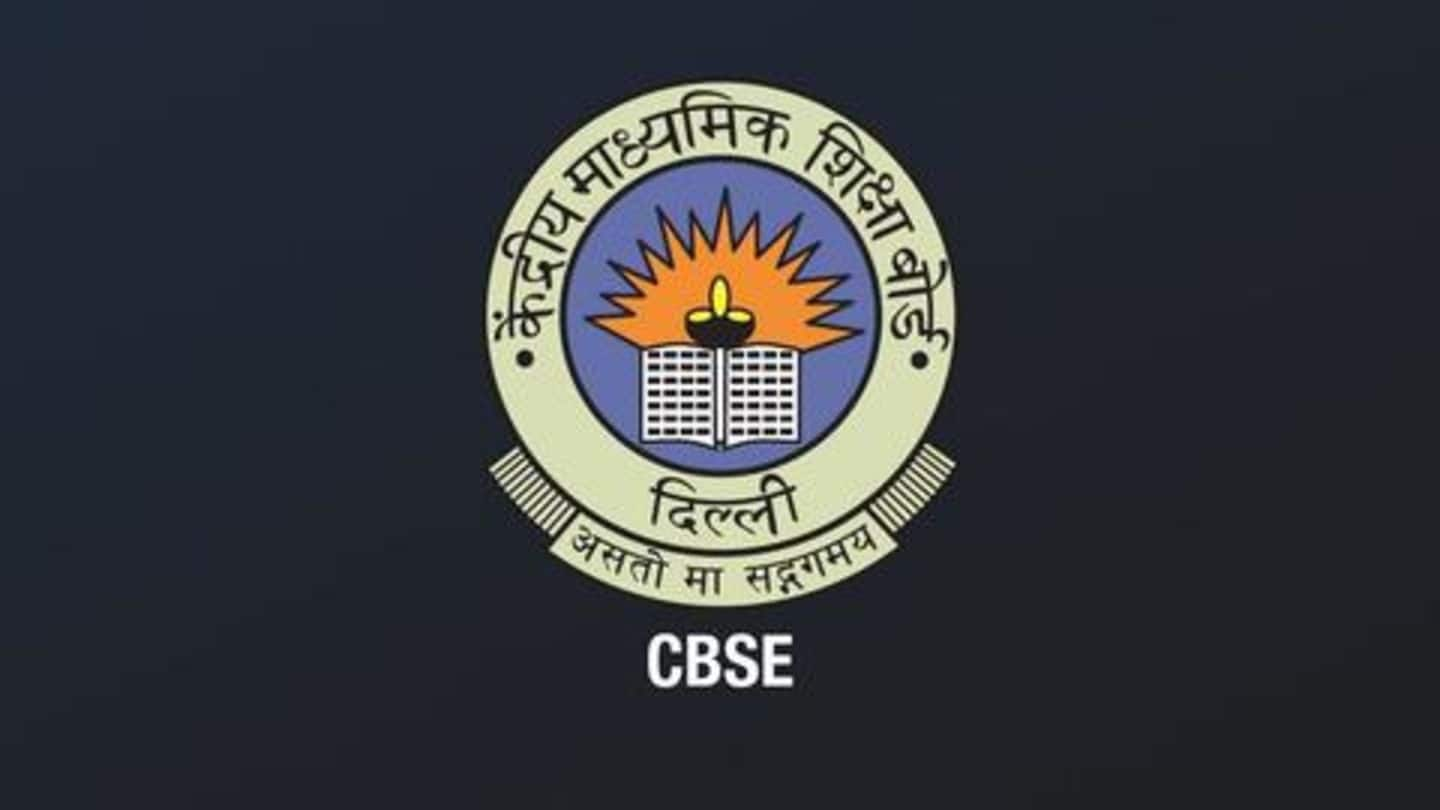
CBSE to focus on 'experiential learning' from 2019-20 session
What's the story
Central Board of Secondary Education (CBSE) will make its teaching process more student-friendly by focusing on "experiential learning".
As per the issued guidelines, all CBSE affiliated schools will have to plan the curriculum so that "students should learn from what they study and use it."
Also teachers should "follow inclusive principles."
Notably, the announced changes will be effective from session 2019-20.
Here's more.
Statement
"Students should learn from what they study and use it"
Anurag Tripathi, CBSE secretary, said, "Students should learn from what they study and use it. It should not be rote learning for them, which they only learn for exams and then forget."
He further said that the board will be will push for academic improvement and unveil a policy for the same soon.
As per Tripathi, CBSE will have a punch line every year.
Press release
HRD Ministry also released various guidelines in a press release
In a press release, the Human Resource Development (HRD) Ministry has stated that under the Integrated scheme for School Education - Samagra Shiksha, there is a provision that will support all the states and union territories for guidance and counselling in schools.
Moreover, funds will be provided to the schools for encouraging teachers to function as "the first level counsellors in schools".
Quote
Experiential Learning is the theme for the academic year: CBSE
Earlier, in a letter to the parents, the Board had said, "Experiential Learning is the theme for the new academic year 2019-20. In simple terms, experiential learning is the process of "learning by doing" and is a crucial input for making learning joyful."
Guidelines 1
Teachers advised to follow inclusive principles instead of labelling students
The press release has also laid out several guidelines for making the process of teaching more student friendly.
These guidelines advise teachers "to follow inclusive principles and not label children as 'slow learners' or 'bright students', or 'problem children'."
The schools are directed to develop a curriculum that is not only student-centric but also encourages active learning through reflections and constructing knowledge.
Information
CBSE planning to promote life skills and value education
Apart from directing the teachers, the learning outcomes developed by NCERT has to "make other stakeholders responsible and alert towards their role for ensuring quality education." The board is also planning to promote life-skills and value education among students by integrating Health and Physical education.
CBSE's letter
One sports period mandatory for classes I to XII
In an earlier notification, the Board had introduced several new changes.
As per those changes, the schools have to include one sports period per day for all the students from Classes I-XII.
Moreover, schools were instructed to dedicate at least two periods/week for arts from all classes, which would include all the streams covered under art, i.e., music, dance, visual arts, and theater.
Lessons
NCERT has developed textbooks to cover features of anxiety, stress
Further, NCERT has also developed textbooks in order to cover the features of anxiety, stress and other related problems that students face in school.
Chapters like 'Motivation and Emotions' and 'Meeting Life Challenges' are now a part of the Psychology textbook of Classes XI and XII.
Moreover, NCERT's Adolescence Education Program will also be inculcating life skills in teenage students.
NCF
NCF advocating for healthy growth among students of all stages
That's not it.
The National Curriculum Framework (NCF) is also advocating for "healthy growth and development of students across all school stages" and counselling for students, parents and teachers in order to reduce students' stress.
"It particularly emphasizes the need to provide guidance and counselling by trained professionals to create the support system for meeting academic and social pressures," the press release stated.